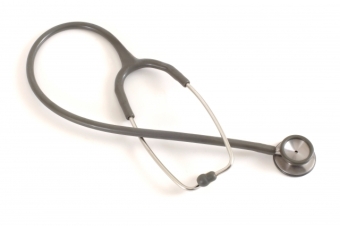Taiwan Health Care: How Good Have We Got It?
 Monday, March 15, 2010 at 11:54PM
Monday, March 15, 2010 at 11:54PM A bout of what may or may not have been pneumonia landed our three-year-old son in the neighborhood hospital for the better part of five days last week. The experience got me thinking about the state of health care here in the Taiwan on the eve of what is supposed to be the do-or-die moment for President Obama’s health care reforms back in the U.S.
In 1995, Taiwan instituted a relatively comprehensive single-payer health care program in the form of its National Health Insurance, based largely on the Canadian model. This is funded through a combination of payroll taxes, direct government payments and small out of pocket payments generally made at the time of treatment. The average visit to one’s neighborhood doctor for a case of the flu might set you back US$10 for assessment and medication.
Some families, ours included, choose to supplement NHI coverage with private health insurance. We pay the equivalent of about US$30 a month for our plan. On this particular visit to the hospital, the extra insurance paid for a private room for our son that included a small fridge, shower and a couch that either my wife or I could sleep on when staying with him. The extra space and comfort were well worth the monthly premium.
On the surface it seems NHI offers a tremendous value for what one pays into the system. Coming from the U.S. where a visit to a hospital emergency room can cost a small fortune if one is uninsured, it took a while to get used to having these resources at my disposal. I would never consider going to the doc for a simple case of the sniffles back in California. Here a tickle in the throat sends most locals scampering to their neighborhood clinic.
What are we really getting for all this public health care? As mentioned, the biggest plus is the peace of mind that comes with easy access. One doesn’t have to sit up late wondering if a child’s fever is high enough to warrant a trip to the emergency room. Concerned about that mysterious rash, go get it checked out before it turns into something really nasty.
Recently I was suffering from mysterious back pains. The doctor wasted no time in sending me in for a sonogram test for kidney stones and an X-ray of my spine for what turned out to be nothing more serious than being over the age of 40 and trying to swing a softball bat like a 20-year-old. The bill for all these tests and a prescription for muscle relaxants: less than US$15.
It is worth noting that Taiwan’s system has not plunged the country into the pit of godless socialism that the right-wing demagogues, pundits and politicians back in the U.S. seem to believe is the natural outcome public health care. On the contrary, the country remains a robustly capitalistic and relatively democratic society.
This is not to say that the system is without its flaws. Pharmaceutical companies have unprecedented access to health care professionals. The result is that doctors tend to overmedicate in my opinion, prescribing a cocktail of multicolored pills for even the common cold. The quality of health care professionals and individual hospitals can vary greatly, as well. I plan to deal more with the negative side of Taiwan’s health care system in the second part of this article to be posted later.
Taiwan’s public health care system does what it was designed to do, make health care accessible to the entirety of the local population. It’s not perfect, but nor is it the bloated, unwieldy and inefficient mess that some would have us believe is the outcome of government stepping in to provide health coverage to the masses.
Taiwan’s National Health Care System






Reader Comments (3)
Great post. I'm looking forward to reading the second part of your series on Taiwan's National Health Care System.
The only major gripe I have about the system is the same as yours. Doctors do tend to over medicate, but that's easily remedied if you question your doctor and keep an eye on what you've been prescribed.
Yes they over medicate, a trip last year to the eye doctor resulted in medication I neither asked for nor needed, but it's my understanding that if they don't prescribe they lose out on fees for that visit. I think it's an acceptable trade-off -- we throw most of the medication in the garbage.
The system has it's problems, which undoubtedly you will outline in your next article, but after living here for 12 years and raising 2 children, I'm more than pleased.
Great feedback, everyone. Keep the anecdotal stories coming. I should have a followup post ready this weekend along with update on my son, which dovetails with the discussion about some of the negatives of the local system. On the whole I believe the positives outweigh the negatives, particularly when you look at what resources are available to families.